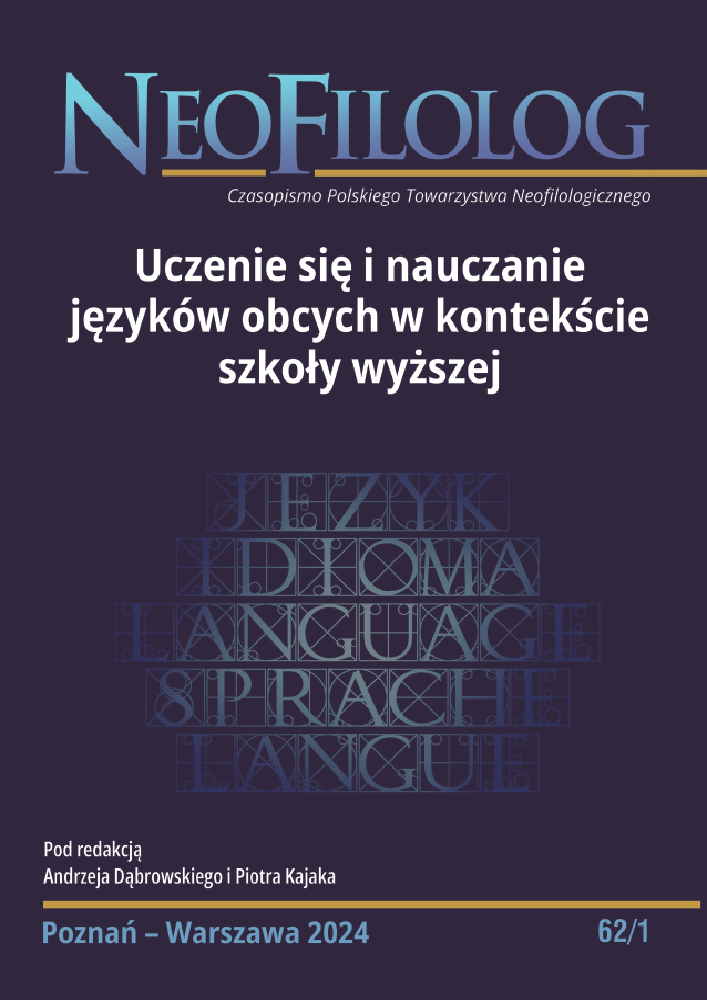Abstrakt
The article is about philological studies in Poland. It discusses the results of a survey conducted at 43 programs at philological studies in 13 Polish universities, with the aim of outlining the profile of students starting their studies (first year of bachelor’s and master’s programs) and those completing them (final year of bachelor’s and master’s programs). In the first case, the goal was to understand the motivations for pursuing studies and the expectations associated with them. In the second case, the objective was to determine the level of satisfaction with the completed studies and the reasons for satisfaction or dissatisfaction. In total, nearly 5000 respondents participated in the study. The results allowed us to draw conclusions regarding the profile of contemporary students of foreign philology and to propose some directions in which the programs might evolve.
Bibliografia
Grabowska M. (2023), L’apprentissage informel des langues étrangères. Paris : L’Harmattan.
Larsen-Freeman D., Cameron L. (2008), Complex System and Applied Linguistics. Oxford: Oxford University Press.
Pike K.L. (1967), Language in Relation to a Unified Theory of Structure of Human Behavior. La Haye: Mouton. DOI: https://doi.org/10.1515/9783111657158
Smuk M., Grabowska M., Sowa M. (2023), Studia filologiczne w Polsce z perspektywy studenta. Kraków: Universitas.
Licencja
Prawa autorskie (c) 2024 Monika Grabowska, Maciej Smuk, Magdalena Sowa

Utwór dostępny jest na licencji Creative Commons Uznanie autorstwa – Bez utworów zależnych 4.0 Międzynarodowe.
Przedstawiany utwór (artykuł) upubliczniany jest na podstawie umowy z autorem i na licencji Creative Commons Attribution-NoDerivatives 4.0 International (CC BY-ND 4.0).
Użytkownicy mają obowiązek podania wraz z rozpowszechnionym utworem, informacji o autorstwie, tytule, źródle (odnośniki do oryginalnego utworu, DOI) oraz samej licencji;
- bez tworzenia utworów zależnych,
- utwór musi być zachowany w oryginalnej postaci.
Uniwersytet im. Adama Mickiewicza w Poznaniu zachowuje prawo do czasopisma jako całości (układ, forma graficzna, tytuł, projekt okładki, logo itp.).

